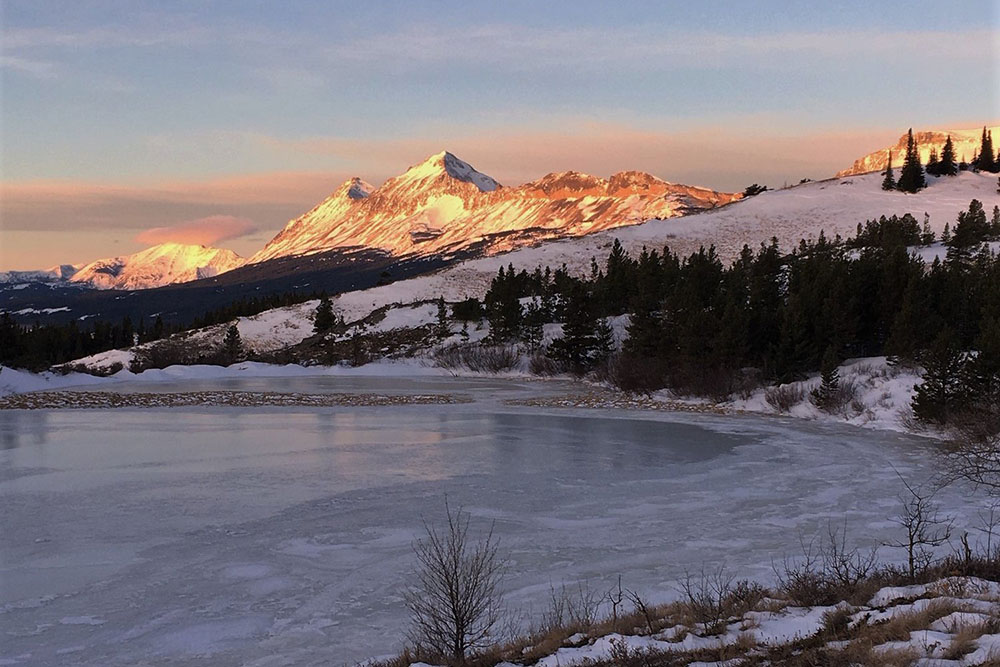
Litigation over Oil and Gas Lease Moves Forward
After months of inaction, the federal district court has decided to allow Solenex to amend its lawsuit challenging the Department of Interior’s 2016 decision to cancel its oil and gas lease in the Badger-Two Medicine. As you may recall, when the Circuit Court of Appeals re-instated the lease cancellation decision in June 2020, it remanded the case back to district court for further proceedings on aspects of the case that neither court had yet ruled. Solenex subsequently petitioned the district court to review the case and asked to raise additional arguments. Over the strong objections of our legal team at Earthjustice and the Department of Justice, the judge ruled in favor of Solenex. The case now proceeds to the briefing phase, with all briefs due later this winter.
Joint Secretarial Order on Co-Stewardship Released
As part of the White House Tribal Nations Summit this month which GTMA attended via Zoom, Interior Secretary Deb Haaland and Agriculture Secretary Tom Vilsack issued exciting new departmental policy directives to expand tribal nations’ role in stewarding federally managed lands and waters. The Joint Secretarial Order on Fulfilling the Trust Responsibility to Indian Tribes in the Stewardship of Federal Lands and Waters delineates several important actions their respective bureaus, agencies, and offices must follow in managing land, water, and wildlife that affect tribal nations. These include:
-
Ensure all decisions consider how to safeguard tribal nation’s rights and interests.
-
Conduct early, meaningful consultation with tribal governments from the earliest stages of a planning or decision making process.
-
Seek to incorporate pertinent tribal resource management plans into federal planning, as is commonly done with other jurisdictions, to improve landscape scale conservation and restoration work.
-
Consider tribal expertise and Indigenous Knowledge in decision making, especially when decisions affect treaty/reserved rights and resources or subsistence use.
-
Enter into co-stewardship agreements and help build tribal institutional capacity to implement these agreements.
-
Expedite efforts to consolidate tribal land holdings within Reservation boundaries, including the acquisition and conversion of federal and private lands into trust.
Far too often and for far too long tribal nations have been included too late, too little, or not at all in federal planning and management actions that affect tribal resources, sacred sites, and cultural and religious uses of federal lands and waters. We believe this joint order, however limited in scope, is an important policy corrective that is long overdue. It sends a clear message to federal land managers to make their trust responsibilities a top priority and not just a check-a-box step in a process. If properly implemented, these directives should help ensure a stronger voice for tribal nations in certain federal decisions. And the emphasis on co-stewardship arrangements should help create stronger partnerships between federal and tribal governments that have the potential to improve management outcomes, something that benefits all Americans.
Federal Infrastructure Bill Includes Wildlife Funding
The bipartisan infrastructure bill signed into law this month included several key provisions to help wildlife. First and foremost, it included $350 million in dedicated funding for wildlife crossings structures and other highway projects that reduce wildlife-vehicle collisions. It also made such projects eligible for other transportation program dollars. And it provided assistance to states to more effectively study and prioritize such projects. Approximately 1 million wild animals are struck and killed by vehicles every year in the U.S., collisions that result in over 200 human fatalities and 26,000 injuries. Highway design and traffic volumes further hinder the ability of animals to move across the landscape to find resources, reproduce, or adapt to climate change, with serious repercussions for the long-term survival of many wildlife populations and species like grizzly bears and big horn sheep. The infrastructure bill’s investments in wildlife connectivity is a huge win for wildlife conservation and motorist safety. Thank you, Senator Tester, for championing this important bipartisan legislation!
Spotted Bear Logging Project Proposed
The Flathead National Forest released plans this month for a commercial logging and vegetation management project designed to reduce fuels near the Spotted Bear Ranger Station. The approximately 3,800-acre project, which is mostly within the Wild and Scenic River Corridor of the South Fork Flathead River, seeks to decrease Douglas-fir presence, many of which are dying and improve conditions for ponderosa pine and western larch. Glacier-Two Medicine Alliance has not fully reviewed the proposal but has concerns about possible impacts on water quality, grizzly bear habitat, and scenic character of the river corridor. We encourage all interested persons to submit comments ahead of the Dec. 10th deadline. More information, the complete project proposal, and directions on submitting comments is available on the Flathead National Forest’s website.
